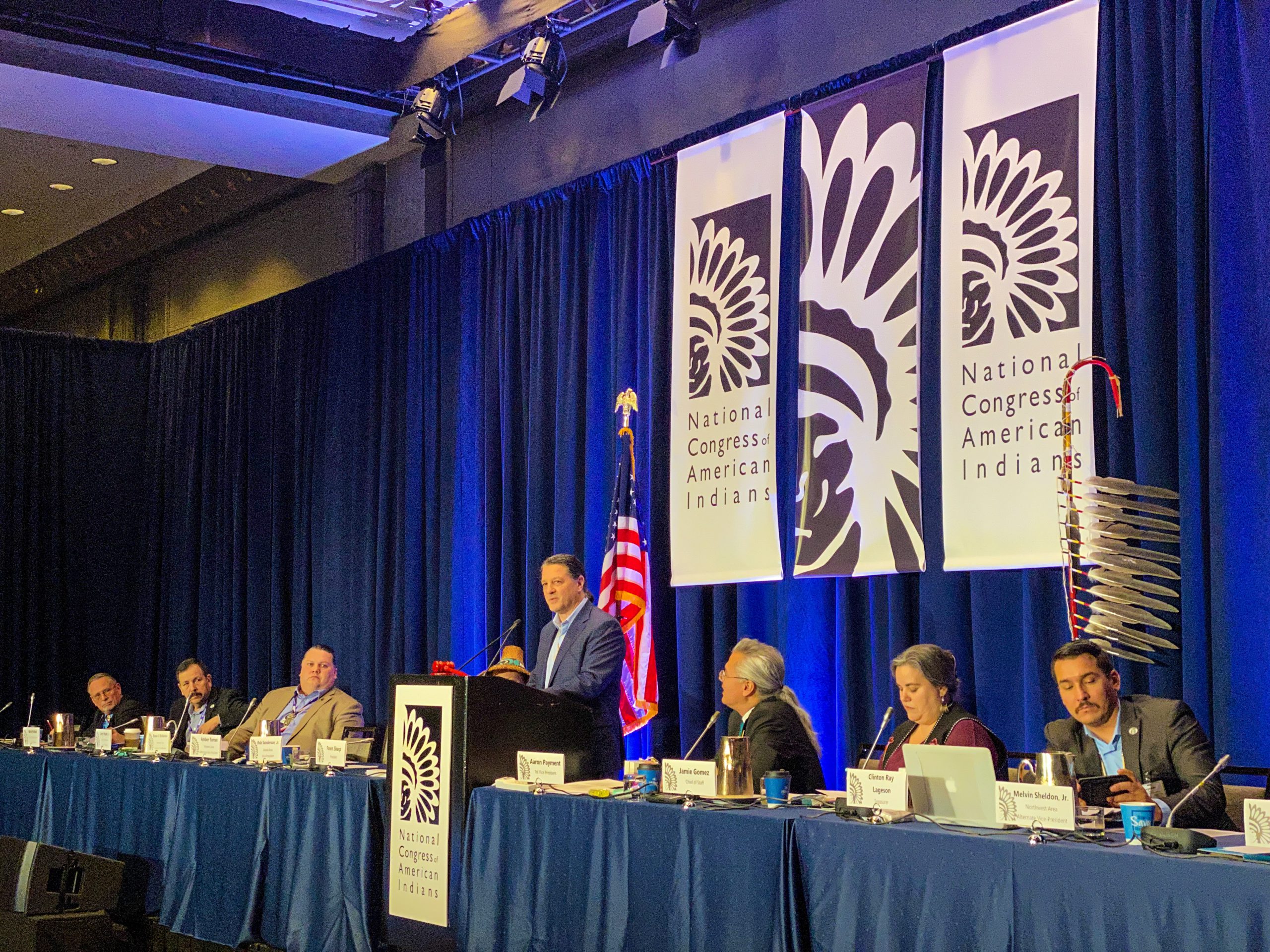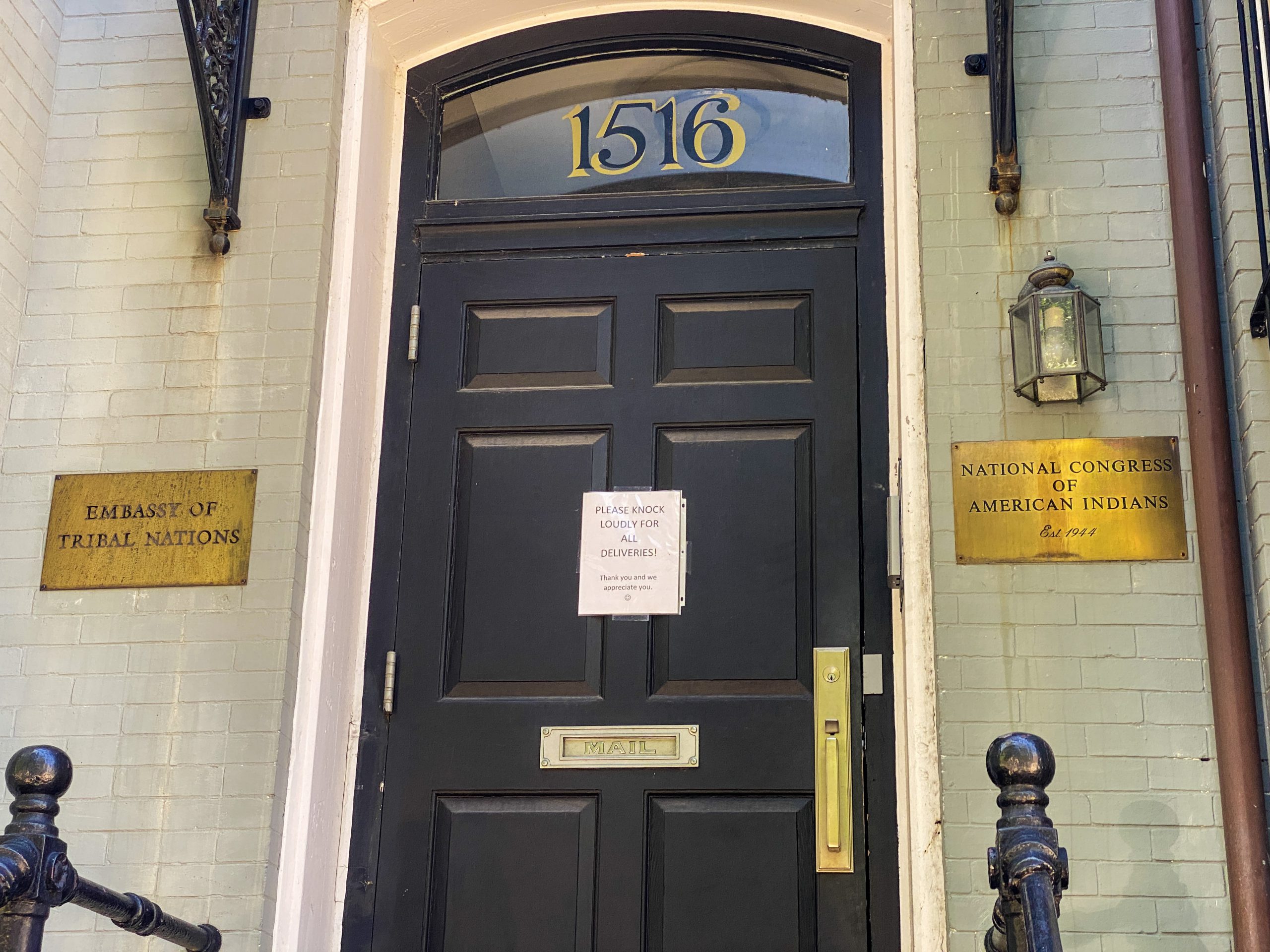Indianz.Com > News > National Congress of American Indians heads into meeting amid disarray

National Congress of American Indians heads into meeting amid disarray
Friday, June 10, 2022
Indianz.Com
WASHINGTON, D.C. — Tribal leaders and their advocates are raising fresh concerns about the National Congress of American Indians ahead of the organization’s first in-person meeting in more than two years.
NCAI kicks off its mid-year meeting in Alaska on Monday. On the eve of the event, Dante Desiderio has been suspended as chief executive officer, according to an Indian law and policy expert with close ties to the largest inter-tribal advocacy organization in the U.S.
“I heard they are messed up,” one tribal leader relayed to Indianz.Com, although a more explicit word was used to describe the situation at NCAI.
An email sent to NCAI’s communications team on Friday afternoon was not immediately answered. The message inquired about Desiderio’s status within the organization, which he joined as its highest-ranking executive barely a year ago.
But an ncai.org email account that tribal leaders and advocates have used to communicate with Desiderio mysteriously went awry on Friday. NCAI’s server returned an error stating that the CEO’s inbox “is unable to receive mail” and may have been “disabled.”
“I’m not surprised,” another Indian law and policy expert told Indianz.Com of the developments.
Desiderio, who previously worked at NCAI, is the second person to hold the title of “Chief Executive Officer” at the the organization. Previously, the highest-ranking staffer was known as the “Executive Director.” The new title was adopted following the departure of Jacqueline “Jackie” Pata as executive director. Pata, a citizen of the Tlingit and Haida Tribes who was previously known as Jackie Johnson, held the role for nearly 18 years, a record for just about every other Indian organization. Pata had been suspended on the eve of NCAI’s annual meeting in October 2018 amid questions about her handling of a sexual harassment scandal involving the organization’s former general counsel, who was non-Native. Her departure was later announced during NCAI’s winter session in Washington, D.C., in February 2019. Kevin Allis, a citizen of the Forest County Potawatomi Community, was hired as the first chief executive officer in June 2019. At the time, his selection was hailed as a “new chapter” for an organization that has defended tribal sovereignty and tribal interests since 1944. Barely 18 months later, Allis announced his exit during NCAI’s annual meeting in November 2020, which took place virtually due to COVID-19.
Search
Filed Under
Tags
More Headlines
Cronkite News: Gathering addresses ‘epidemic’ among Native people
VIDEO: Cody Desautel on tribes and federal forest management
AUDIO: Legislative Hearing on Discussion Draft of Forest Management Bill
Native America Calling: Remembering the 1974 Navajo border town murders
Native America Calling: Can the right approach close the Native immunization gap?
Cronkite News: Long COVID cases remain high in Arizona
Native America Calling: Eyes in the sky for development, public safety, and recreation
Native America Calling: Three new films offer diverse views of Native life
NAFOA: 5 Things You Need to Know this Week
Chuck Hoskin: Cherokee Nation works toward cure for arthritis
Native America Calling: Protecting young people from the down sides of social media
Cronkite News: Fake ‘shaman’ among candidates failing to make Congressional ballot
Native America Calling: New Native voices in poetry
Cronkite News: Tribes air concerns about border at hearing in nation’s capital
Native America Calling: Indiginerds descend on Oklahoma City
More Headlines
VIDEO: Cody Desautel on tribes and federal forest management
AUDIO: Legislative Hearing on Discussion Draft of Forest Management Bill
Native America Calling: Remembering the 1974 Navajo border town murders
Native America Calling: Can the right approach close the Native immunization gap?
Cronkite News: Long COVID cases remain high in Arizona
Native America Calling: Eyes in the sky for development, public safety, and recreation
Native America Calling: Three new films offer diverse views of Native life
NAFOA: 5 Things You Need to Know this Week
Chuck Hoskin: Cherokee Nation works toward cure for arthritis
Native America Calling: Protecting young people from the down sides of social media
Cronkite News: Fake ‘shaman’ among candidates failing to make Congressional ballot
Native America Calling: New Native voices in poetry
Cronkite News: Tribes air concerns about border at hearing in nation’s capital
Native America Calling: Indiginerds descend on Oklahoma City
More Headlines
